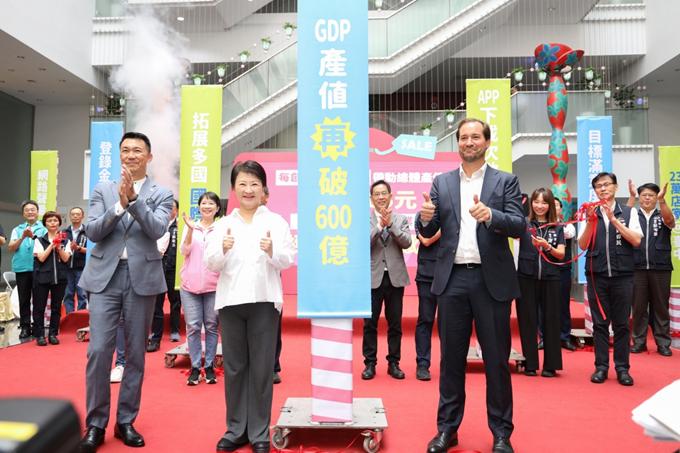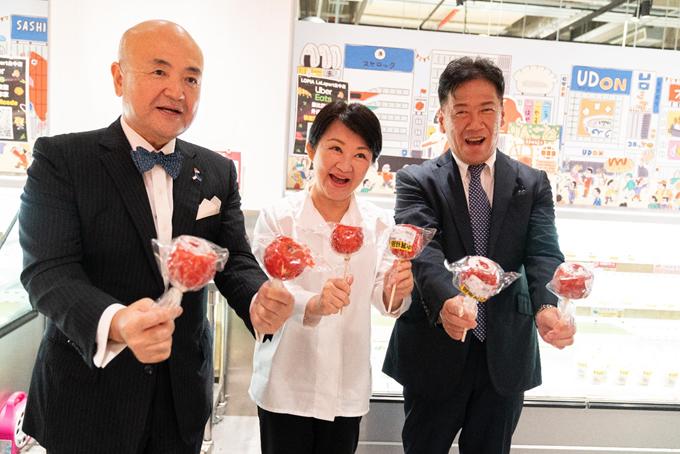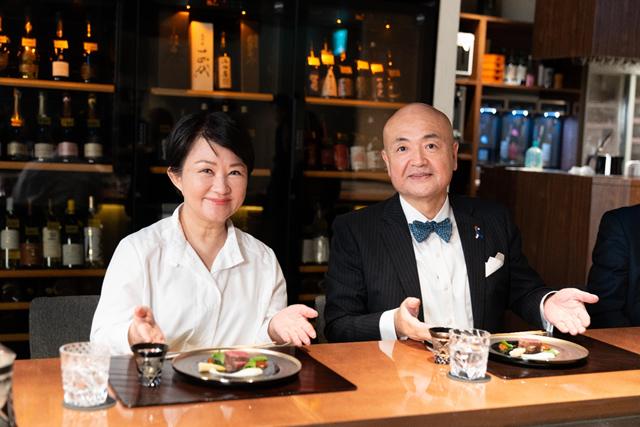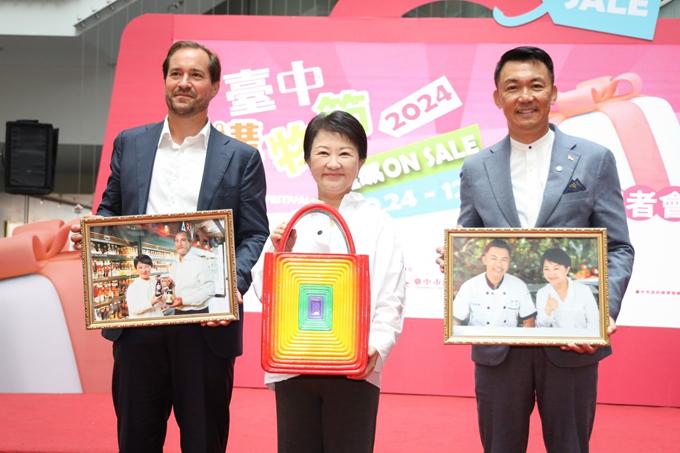The 2024 Taichung Shopping Festival had achieved outstanding results, generating a total registered spending amount of NT$35.3 billion. The Taichung Pass (TCPASS) app has surpassed 2.8 million downloads, with over 1.65 million registered members. The festival attracted international participation from over 40 countries, including Malaysia, Mainland China, Hong Kong, Vietnam, Japan, Indonesia, the United States, Andorra, Macau, and the Philippines, with a total of 2,784 foreign travelers registering their purchases, amounting to more than NT$43 million. This reflects Taichung’s appeal as a global city.
Foreign Traveler Participation and Spending Rankings

Photo: Economic Development Bureau, Taichung City Government
According to Taichung City Government's Economic Development Bureau (EDB) Director, Chang Feng-Yuan, the event app was integrated into the TCPASS in 2022 (the 4th edition), introducing data analytics features. Since 2024, nationality has been a mandatory field during registration. The statistics reveal that 2,784 foreign travelers participated this year, with the top three countries being:

Photo: Economic Development Bureau, Taichung City Government
1. Malaysia – 633 participants
2. Mainland China – 434 participants
3. Hong Kong – 403 participants

Photo: Economic Development Bureau, Taichung City Government
Other notable participant numbers include Vietnam (250), Japan (182), Indonesia (152), the United States (63), Andorra (59), Macau (54), and the Philippines (46).
In terms of registered spending, the top three nationalities were:

Photo: Economic Development Bureau, Taichung City Government
1. Mainland China – NT$11.51 million
2. Hong Kong – NT$8.96 million
3. Malaysia – NT$8.83 million
Other countries, including the United States, Japan, Vietnam, and Indonesia, also recorded over NT$1 million in spending.
Key Marketing Strategies for International Growth
Director Chang highlighted three major marketing strategies that contributed to the festival's success:
1. International Video Marketing:
Collaborated with representatives from Japan, Korea, and the United States in Taiwan to film promotional videos.
Each video garnered over 250,000 views online.
2. Expanded Global Promotion:
Widely disseminated festival-related content through international English-language media platforms.
Reached 47 countries, including Singapore, Australia, and New Zealand.
Promoted the festival to over 500 hotels across Asia.
3. Multilingual App Interface:
The event app now supports Chinese, English, Japanese, and Korean, making it easier for foreign visitors to participate.
Boosting Taichung's Tourism and Economy
According to Tourism Administration, Ministry of Transportation and Communications, during the festival period, Taichung saw an influx of foreign visitors, with the top three source regions being:
1. Hong Kong – 24,954 visitors
2. Vietnam – 9,900 visitors
3. South Korea – 9,618 visitors
This surge in international tourism has significantly contributed to Taichung’s local economy and tourism industry.
Future Plans: Strengthening Taichung's International Presence
The Economic Development Bureau expressed gratitude for the enthusiastic participation of travelers from over 40 countries. Moving forward, the Taichung City Government will continue to prioritize international marketing, enhance the festival’s global reach, and attract even more international visitors to experience the unique charm of Taichung.
Advertorial by Economic Development Bureau, Taichung City Government

In Italy’s storied gold-making hubs, jewelers are reworking their designs to trim gold content as they race to blunt the effect of record prices and appeal to shoppers watching their budgets. Gold prices hit a record high on Thursday, surging near US$5,600 an ounce, more than double a year ago as geopolitical concerns and jitters over trade pushed investors toward the safe-haven asset. The rally is putting undue pressure on small artisans as they face mounting demands from customers, including international brands, to produce cheaper items, from signature pieces to wedding rings, according to interviews with four independent jewelers in Italy’s main

Japanese Prime Minister Sanae Takaichi has talked up the benefits of a weaker yen in a campaign speech, adopting a tone at odds with her finance ministry, which has refused to rule out any options to counter excessive foreign exchange volatility. Takaichi later softened her stance, saying she did not have a preference for the yen’s direction. “People say the weak yen is bad right now, but for export industries, it’s a major opportunity,” Takaichi said on Saturday at a rally for Liberal Democratic Party candidate Daishiro Yamagiwa in Kanagawa Prefecture ahead of a snap election on Sunday. “Whether it’s selling food or

CONCERNS: Tech companies investing in AI businesses that purchase their products have raised questions among investors that they are artificially propping up demand Nvidia Corp chief executive officer Jensen Huang (黃仁勳) on Saturday said that the company would be participating in OpenAI’s latest funding round, describing it as potentially “the largest investment we’ve ever made.” “We will invest a great deal of money,” Huang told reporters while visiting Taipei. “I believe in OpenAI. The work that they do is incredible. They’re one of the most consequential companies of our time.” Huang did not say exactly how much Nvidia might contribute, but described the investment as “huge.” “Let Sam announce how much he’s going to raise — it’s for him to decide,” Huang said, referring to OpenAI

The global server market is expected to grow 12.8 percent annually this year, with artificial intelligence (AI) servers projected to account for 16.5 percent, driven by continued investment in AI infrastructure by major cloud service providers (CSPs), market researcher TrendForce Corp (集邦科技) said yesterday. Global AI server shipments this year are expected to increase 28 percent year-on-year to more than 2.7 million units, driven by sustained demand from CSPs and government sovereign cloud projects, TrendForce analyst Frank Kung (龔明德) told the Taipei Times. Demand for GPU-based AI servers, including Nvidia Corp’s GB and Vera Rubin rack systems, is expected to remain high,